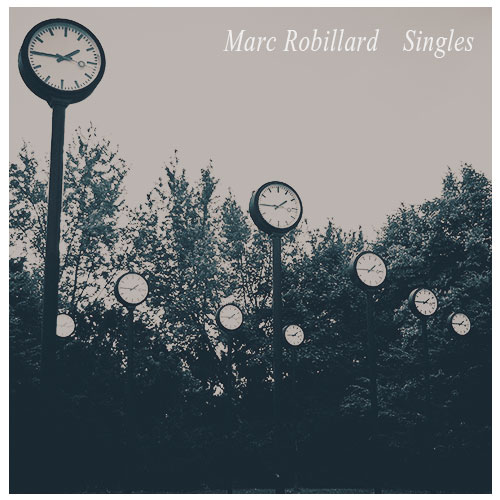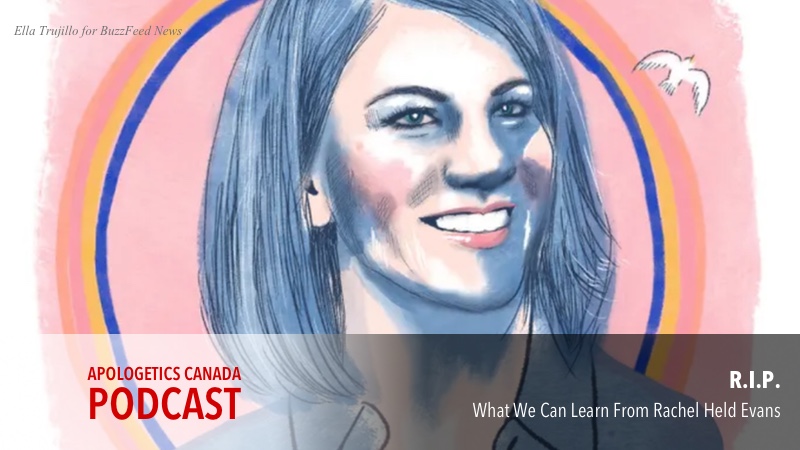On May 3, 2019, Rachel Held Evans, the 37-year-old popular progressive Christian author, tragically passed away, leaving behind two young children and a husband. Known for questioning and challenging the Evangelical establishment, her authenticity won the admiration of many conservative Christian leaders despite their sharp differences. Andy, Terry, and Steve come together in today's edition of the AC Podcast for a moment to reflect.
R.I.P.: What We Can Learn from Rachel Held Evans
Links & Articles
Intro Music

Amped Adapter by Marc Robillard
Outro Music

Another Time
by LiQWYD


Dear Andy, Terry and Steve,
Thankyou for producing another engaging and thoughtful episode.
Towards the end of this episode about Ra hel Held Evans (I hadn’t previously heard of her) you were critical of so-called “crusading” Christians as opposed to those on a “journey”. What exactly is a ‘crusading’ Christian is your estimation? How does it differ for one on a ‘journey’?
Peter Marendy
Brisbane, Australia
Greek Orthodx Christian
Hi Peter,
Thank you for tuning in to the show and asking a thoughtful question. I think I know Andy’s position well enough to answer for him.
By a ‘crusading’ Christian (or anyone, for that matter), Andy means someone who already has his mind made up. In other words, you begin with an answer and go on to prove it regardless of what you discover along the way. Someone who is on a journey is open to landing on a conclusion different than what he began with; not so with someone who is on a crusade. (That’s why Andy was saying that being on a journey is actually quite difficult.) So, you may remember from the episode, Andy mentions a friend who Andy thinks just won’t be convinced, and those who begin with an agenda on certain highly sensitive and politicized issues.
Over the years, I (as well as others) have noticed certain patterns that suggest this person might be on a crusade. One is the lack of willingness to concede even a minor point. If I’m talking with someone and my interlocutor doesn’t acknowledge anything that I say, I begin to suspect that this person’s mind is made up. Secondly – and related to the first point – if my interlocutor has a “shotgun approach,” where I will answer an objection but this person will just move on to the next objection – often without acknowledging my answer at all – by saying “Yeah, but what about this or that?”, then I start suspecting that this interlocutor is maybe more of a ‘crusader.’
Of course, these are not air-tight categories. It might be that my interlocutor has been wounded deeply and these need to be worked through first before addressing intellectual problems. (Or while we are addressing intellectual problems.) That’s why discernment, I think, is critical.
Hi guys, thanks for all the work you do at Apologetics Canada, I have been enjoying your insights for a number of years now! I literally eat this stuff up! Towards the end of the podcast about Rachel Held Evans you elude specifically to “progressive” Christianity, a term that many have come to call “liberal” Christianity. When I think of progressive Christianity I think of a group that feels like Christianity is progressing, as in, it’s getting better all the time – that in fact as we evolve as Christians we can come to understand what Christianity is better than the disciples or Paul or any of our church forefathers – That our church forefathers only interpreted Christianity based on their limited knowledge and we currently can re-interpret Christianity in a more advanced (progressive) way. These interpretations often include abandoning the doctrine of original sin and even the substitutionary sacrifice of Jesus on the cross. Moreover progressive Christianity usually forwards the idea that Christ wasn’t really supposed to die and if he was that would make God a cosmic child abuser. Are these points consistent with your views of progressive Christianity? Do you espouse the same? If not, please set the record straight on your views so as not to imply that this is an admirable model of Christianity. There is nothing worse than something that looks like Christianity but when the veil is lifted reveals only human pride and our own desire to save ourselves.
Hi Robert,
Thank you for writing in. We are thankful for your listenership.
Your description of progressive Christianity sounds good enough to me. (Of course, any view that is held by a large group of people is bound to have variations, so some will not accept this description of progressive Christianity.) To answer your question, no, we don’t espouse progressive Christianity as a whole. We were affirming (and critiquing) only select aspects of RHE’s views.
Thank you so much for that reply!